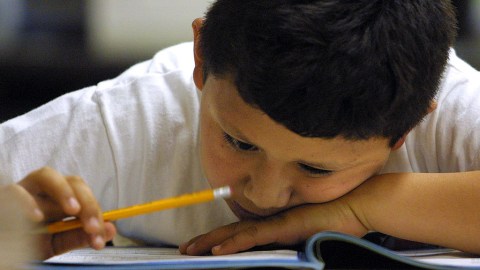Parents in Spain Are Raging Against the Homework Machine

Homework has been around since… well, since schools first existed, and I remember doing a ton of it myself as a kid. I also remember refusing to do my homework, sitting on the back steps, watching geese fly over, wanting to be out bird-hunting with Dad, Mom in the kitchen, yelling “Get in the house and do your homework!”
For families with precious fewer hours each day to spend time as a family, homework can be a drag. A big one.
Before parents in Spain called for a “Homework Strike,” The Spanish organization CEAPA (Confederación Española de Asociaciones de Padres y Madres del Alumnado) surveyed parents about homework, and 82% of those who responded believed that their children received too much of it; just over 50% of them believed it harmed family life.
If you consider the amount of compulsory hours students are required to be at school, the United States is right up there with Spain so it’s likely there would be a similar frustration with homework in this country. And in fact, there is.

Chart from the Organization for Economic Cooperation and Development.
The amount of homework between Spain and the United States is also remarkably similar:

And in the rest of the United States, there’s a growing pushback against homework — for younger kids up to the 7th grade, homework simply presents another power struggle opportunity, usually ends badly, and there’s no evidence that it helps them. However, there’s also evidence that kids’ brains are tired at the end of a school day. Rest and play are critical in younger years.
As children get older, the value of homework increases. A very research-dense book that rather exhaustively compiled data on this, Visible Learning: A Synthesis of Over 800 Meta-Analyses Relating to Achievement, can be skimmed in this article, and it shows this trend. Until children reach secondary school, there’s just not much evidence of a return.
In the United States, pressure from tax-base-deprived communities are forcing schools to have less staff and to give more and more work to teachers because of that phenomenon, which can cascade into teachers asking that children do more work at home.
I can see why it’s tempting for teachers. In fact, socioeconomic factors do impact homework and its value.
What’s your take on homework versus no?





